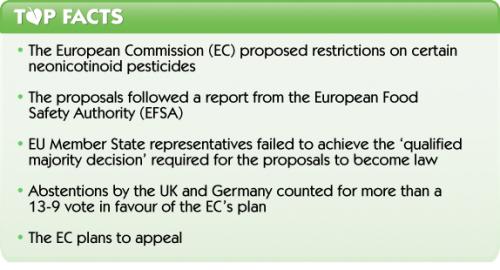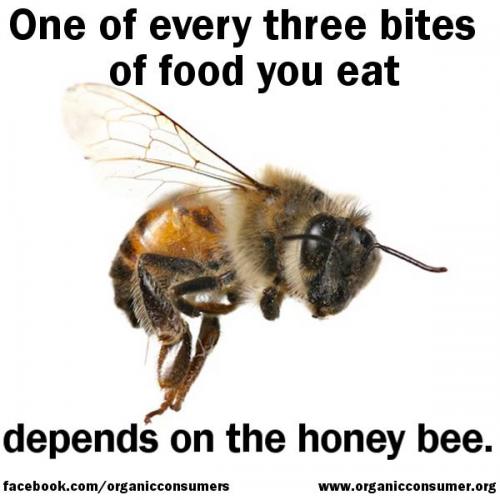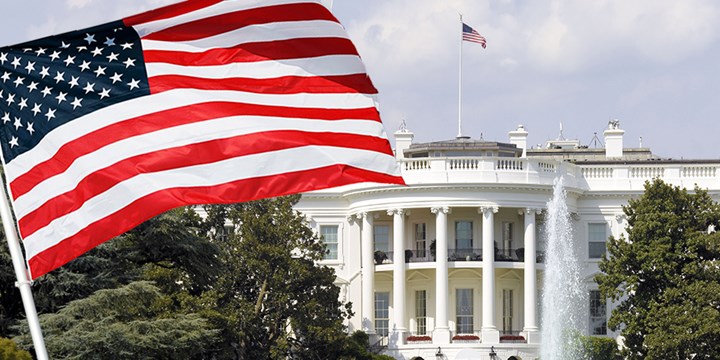Spare a thought for European bees: they’re up against bureaucrats and politicians, and at the moment, they’re losing.
Bureaucrats or bees?
Along with other animals, bees pollinate up to one-third of the crops humans rely upon for food. The advantages of bureaucrats and politicians are, shall we say, less clearly defined. And yet the dithering and sympathy toward corporate interests displayed by European Union (EU) Member States could have horrendous implications for bees, the environment and our food supply.

Last Friday, 15th March, representatives of the EU’s 27 Member States met to vote on European Commission (EC) proposals to restrict the use of certain neonicotinoid pesticides – chemicals that are known to be killing bees. Shamefully, the assembled politicians couldn’t agree on what ought to have been a no-brainer, with the result that, “No qualified decision was reached, either for or against the text”. Meaning that the EC proposals will not be adopted.
Hanging in the balance
According to the UK’s Guardian newspaper, 13 Member States voted in favour of the EC’s restrictions – including France, Italy and Spain – while 9 voted against, led by Romania and Hungary. In this context, the abstentions by the UK and Germany were crucial under the ‘qualified majority voting’ procedure, under which countries’ votes are weighted according to their populations: a very odd concept of democracy indeed. The only way the neonicotinoid restrictions will now become reality in their present form is if the EC opts to appeal the Member States’ decision – which it plans to do, according to a statement released on 19th March by Commissioner Tonio Borg.

Bad omens from Owen
Prior to the vote, the signs were all there that the UK, at least, would not be voting for restrictions on neonicotinoids. ‘Anti-Environment’ Minister Owen Paterson – a man who scathingly dismisses criticism of genetically modified (GM) crops and whose professed love for badgers didn’t stop him from ordering a widespread UK badger cull – clearly believes that economic concerns trump environmental ones.
The anti-environment minister
Whether it’s calling on the EU to step up GM approvals or abstaining from the neonicotinoid vote because of a supposed lack of data, corporate interests appear to win out every time for Mr Paterson. Ironically, the data Paterson claims to be waiting for have been delayed because the control sites were contaminated by neonicotinoids. Neonicotinoid manufacturers Syngenta and Bayer were predictably delighted with the result.
Frustrated MEPs
Members of the European Parliament (MEPs) were less enthusiastic, however. UK Socialists & Democrats MEP Glenys Wilmott declared that, “We have to work at a European level if we are going to make a difference to the worldwide decline in bee numbers”, while French Green MEP Jean Lambert lambasted the UK for, “Blocking EU action to protect our environment, wildlife and even the food we eat”.
We don’t think that restrictions on some, or even all, neonicotinoids will solve the problem of bee disappearances and deaths. But it will be a good start. On this occasion, we’re crossing our fingers that the EC’s planned appeal is successful.








Comments
your voice counts
20 March 2013 at 8:32 pm
Sad that EU do not protect bee by doing that all agricultures will dying soon!
21 March 2013 at 6:29 am
Shame on you, Owen Paterson ! ! !
21 March 2013 at 9:48 am
How can Ministers be so blind to the facts about bees. I hope the EC appeals and wins. These people who are blinded by profit and short term employment problems should not be allowed in office. The bee affair is as bad as the dumping of dead fish back into the sea. It makes me wonder how corrupt the whole Brussels machine really is. It is a good demonstration as to why the accounts cannot be signed for the last many years.
I hope the UK leave the EC soon so we can govern ourselves without the vast sums we pay to Brussels.
21 March 2013 at 12:53 pm
How is this possible, what happened to the common sense???? Better up politicians and EU-ministers!! OPEN YOUR EYES, HEARTS and WAKE UP!!
26 March 2013 at 4:25 am
Letter to each UK member posted today:
"I am appalled at news of the failure of the UK to vote against the ban on pesticides which are proven to kill bees and other pollinating insects.
Multiple around-the-world studies and documentaries have implicated these pesticides in massive bee death since 2006, causing a great debate in the EU. Why then did the UK not vote in favour of a ban?
Despite three-quarters of the UK supporting the ban, the UK decided to ignore public opinion.
As you are aware 13 Member States voted in favour of the EC’s restrictions, while 9 voted against. The abstentions by the UK and Germany were therefore crucial. Is this a matter of economic concerns triumphing over environmental ones one wonders?
It is shameful of UK MEPs voted in office by the UK electorate, to have taken “an easy way out” by abstaining in such a crucial vote.
Moreover, why did Members choose not to vote in favour of this ban when a wealth of scientific evidence has been produced detailing the evident harm to our food, land and wildlife should poisoning of the land continue? It is not a case of insufficient data being available.
It is documented that French Green MEP Jean Lambert heavily criticised the UK for, “Blocking EU action to protect our environment, wildlife and even the food we eat”.
I write to you now as a Member or Sub of The Committee on Agriculture and Rural Development to seek answers.
I can only hope the EU appeal against the unfathomable decision of the UK to keep quiet.
I trust I shall receive your answers in due course."
BATED BREATH!!
03 April 2013 at 6:41 pm
Owen Paterson,
can you not read? The EU (to be precise, the Commission) suggested a regulation BANNING pesticides. Your government, the UK government (+Germany) voted against this suggestion, against the advice of European Commission. If you leave the EU, your government might continue to use pesticides...
Your voice counts
We welcome your comments and are very interested in your point of view, but we ask that you keep them relevant to the article, that they be civil and without commercial links. All comments are moderated prior to being published. We reserve the right to edit or not publish comments that we consider abusive or offensive.
There is extra content here from a third party provider. You will be unable to see this content unless you agree to allow Content Cookies. Cookie Preferences